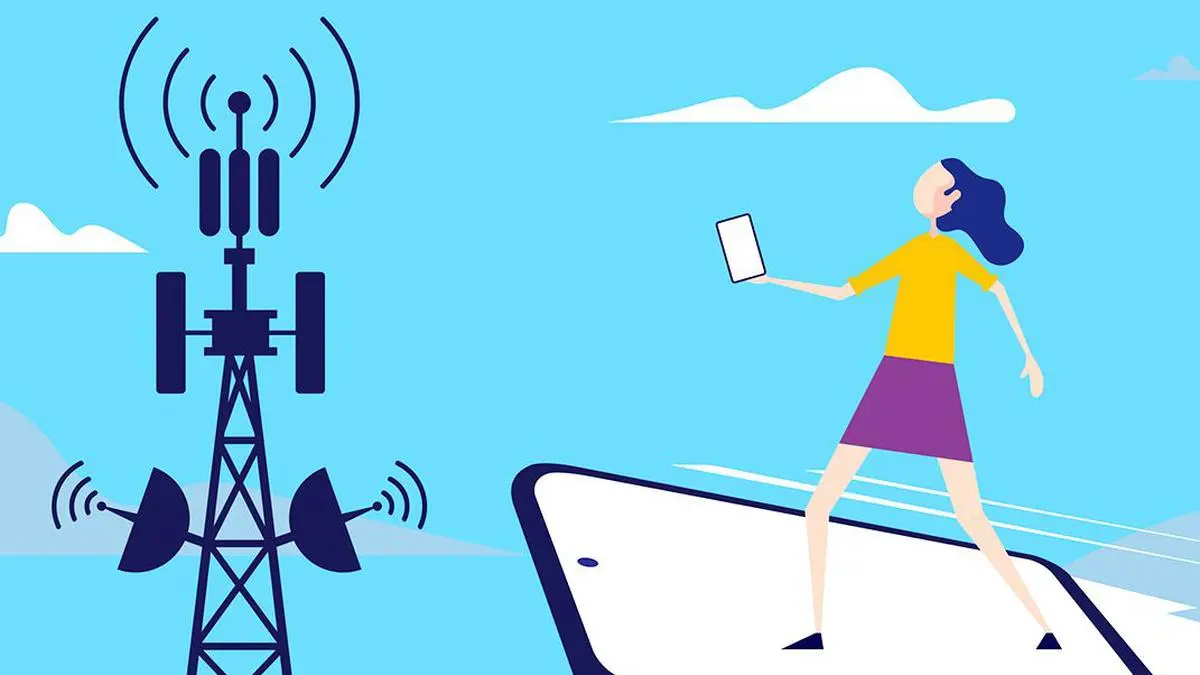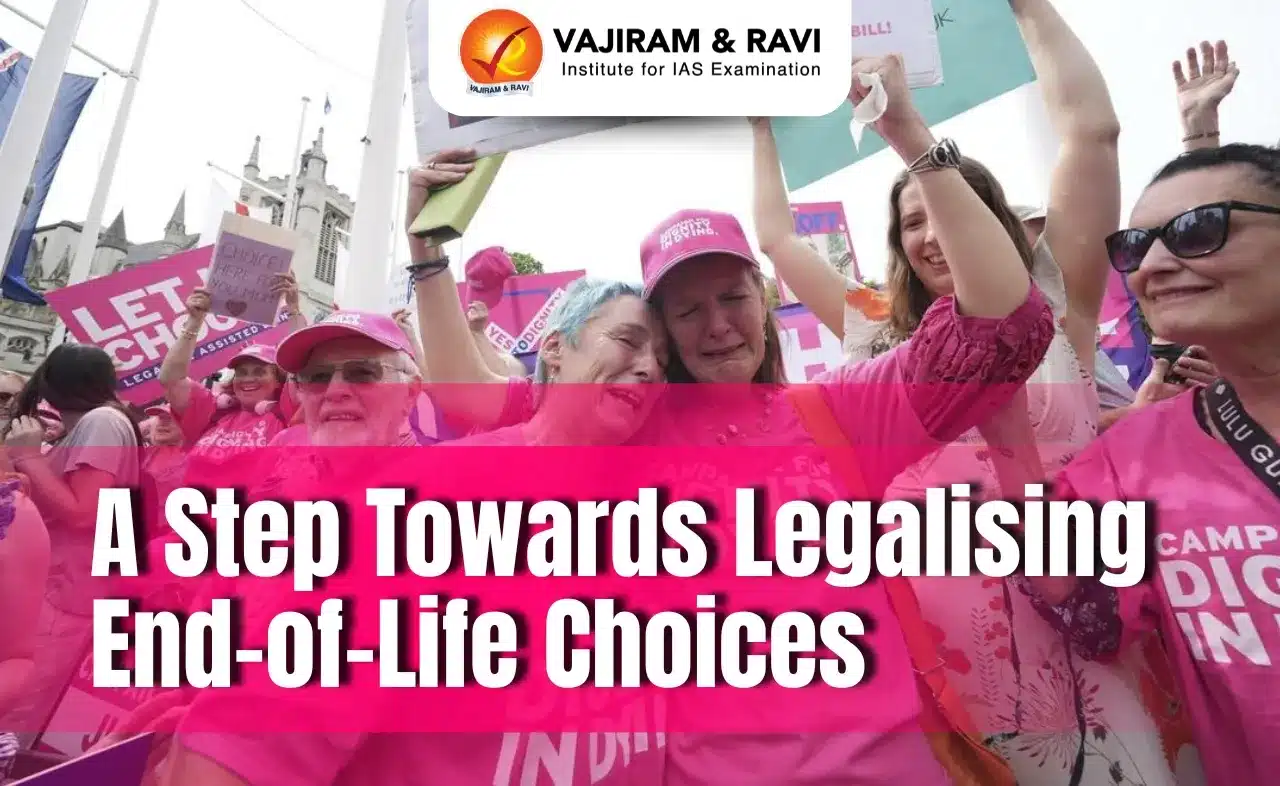What’s in Today’s Article?
- Why in the News?
- About Telecommunications Bill, 2023
- Key Features of Telecommunications Bill, 2023
- Key Issues with the Bill
- How has the Telecom Industry received the Bill?
Why in News?
- The Telecommunications Bill, 2023, was passed in the Parliament this week.
About Telecommunications Bill, 2023
- At present, the Indian Telecommunications sector is governed by three separate Acts of Parliament –
- Indian Telegraph Act 1885,
- Indian Wireless Telegraphy Act 1933,
- Telegraph Wires, (Unlawful Protection) Act 1950
- The Telecommunications Bill, 2023 aims to consolidate these three separate Acts.
- Aim: To amend the existing laws governing the provision, development, expansion and operation of telecommunication services, telecom networks and infrastructure, in addition to assignment of spectrum.
Key Features of Telecommunications Bill, 2023
- Authorisation for telecom-related activities:
- Prior authorisation from the central government will be required to:
- (i) provide telecommunication services,
- (ii) establish, operate, maintain, or expand telecommunications networks, or
- (iii) possess radio equipment.
- Prior authorisation from the central government will be required to:
- Assignment of spectrum:
- Spectrum will be assigned by auction, except for specified uses, where it will be allocated on an administrative basis.
- Specified purposes include: (i) national security and defence, (ii) disaster management, (iii) weather forecasting, (iv) transport, (v) satellite services such as DTH and satellite telephony, and (vi) BSNL, MTNL, and public broadcasting services.
- Powers of interception and search:
- Messages or a class of messages between two or more persons may be intercepted, monitored, or blocked on certain grounds.
- Such actions must be necessary or expedient in the interest of public safety or public emergency, and must be in the interest of specified grounds.
- Telecom services may be suspended on similar grounds.
- An officer authorised by the government may search premises or vehicles for possession of unauthorised telecom network or equipment.
- Protection of users:
- The central government may provide for measures to protect users which include:
- (i) prior consent to receive specified messages such as advertising messages,
- (ii) creation of Do Not Disturb registers, and
- (iii) a mechanism to allow users to report malware or specified messages.
- Entities providing telecom services must establish an online mechanism for registration and redressal of grievances.
- The central government may provide for measures to protect users which include:
- Right of way:
- Entities laying telecommunication infrastructure may seek right of way over public or private property.
- Right of way must be provided on a non-discriminatory and non-exclusive basis to the extent possible.
- Appointments to TRAI:
- The Bill amends the TRAI Act to also allow individuals with: (i) at least 30 years of professional experience to serve as the Chairperson, and (ii) at least 25 years of professional experience to serve as members.
- Digital Bharat Nidhi:
- The Universal Service Obligation Fund has been established under the Indian Telegraph Act, 1885 to provide for telecom services in underserved areas.
- The Bill retains this provision, renames the fund as Digital Bharat Nidhi, and also allows its use for research and development in telecom.
- Offences and penalties:
- The Bill specifies various criminal and civil offences.
- Providing telecom services without authorisation, or gaining unauthorised access to a telecom network or data, are punishable with imprisonment up to three years, a fine up to two crore rupees, or both.
- Breaching terms and conditions of authorisation is punishable with a civil penalty of up to five crore rupees.
- Possessing unauthorised equipment, or using unauthorised network or service, is punishable with a penalty of up to ten lakh rupees.
- Adjudication process:
- The central government will appoint an adjudicating officer to conduct inquiries and pass orders against civil offences under the Bill.
- The officer must be of the rank of joint secretary and above.
Key Issues with the Bill
- Interception of communication:
- The Bill provides that any message or class of messages between two or more persons may be intercepted, monitored, or blocked on specified grounds.
- Such grounds include:
- (i) the interest of the security of the state,
- (ii) friendly relations with other countries,
- (iii) public order, or
- (iv) prevention of incitement of offences.
- Telecom services may be suspended on similar grounds (e.g., internet shutdown).
- Whether procedure and safeguards should be provided in the Bill:
- The procedure and safeguards are to protect the fundamental rights of individuals against the actions of the government.
- Hence, this raises the question whether they should be specified in the Bill, instead of being delegated to Rules issued by the government.
- The Bill may allow mass surveillance:
- The Bill provides that any message or class of messages between two or more persons, or relating to any particular subject, may be subject to interception, monitoring, or blocking.
- These actions will be subject to procedure and safeguards prescribed by the central government.
- Using these grounds, an order may be made to intercept or monitor all communication where a particular word or set of words is used.
- Such an order would require all communication of all users to be monitored.
- Hence, this raises the question whether such actions could be considered proportionate to the objective.
- Safeguards with regard to the power of search and seizure not specified:
- The Bill allows any officer authorised by the central government to search a premise or vehicle on specified grounds.
- The officer must have reason to believe that unauthorised telecommunications equipment or network used to commit an offence is kept or concealed.
- The officer may also take possession of such equipment or network.
- The Bill neither specifies the procedure and safeguards against such actions, nor provides that such safeguards will be prescribed.
- Need for biometric verification:
- The Bill provides that telecom service providers must verify the identity of their users through any verifiable biometric-based identification.
- This requirement may not be proportionate, and may infringe upon the fundamental right to privacy.
How has the Telecom Industry received the Bill?
- The Digital Infrastructure Providers Association (DIPA) and the Cellular Operators’ Association of India have welcomed the provisions in the Bill that bring uniformity across States.
- The Indian Space Association has thanked the government for including satellite-based communication networks for allocation of spectrum by administrative method.
Q1) How big is the telecommunication industry in India?
The Telecom industry in India is the second largest in the world with a subscriber base of 1.179 Bn as of August 2023 (wireless + wireline subscribers).
Q2) How do satellite phones work?
A satellite phone has an omnidirectional or directional antenna that is used for both transmitting and receiving signals. In order to receive a signal for service, most satellite phones require a line-of-sight with the sky.
Source: Will the new telecom Bill streamline the sector? | Explained| PRS
Last updated on June, 2025
→ UPSC Notification 2025 was released on 22nd January 2025.
→ UPSC Prelims Result 2025 is out now for the CSE held on 25 May 2025.
→ UPSC Prelims Question Paper 2025 and Unofficial Prelims Answer Key 2025 are available now.
→ UPSC Calendar 2026 is released on 15th May, 2025.
→ The UPSC Vacancy 2025 were released 1129, out of which 979 were for UPSC CSE and remaining 150 are for UPSC IFoS.
→ UPSC Mains 2025 will be conducted on 22nd August 2025.
→ UPSC Prelims 2026 will be conducted on 24th May, 2026 & UPSC Mains 2026 will be conducted on 21st August 2026.
→ The UPSC Selection Process is of 3 stages-Prelims, Mains and Interview.
→ UPSC Result 2024 is released with latest UPSC Marksheet 2024. Check Now!
→ UPSC Toppers List 2024 is released now. Shakti Dubey is UPSC AIR 1 2024 Topper.
→ Also check Best IAS Coaching in Delhi























